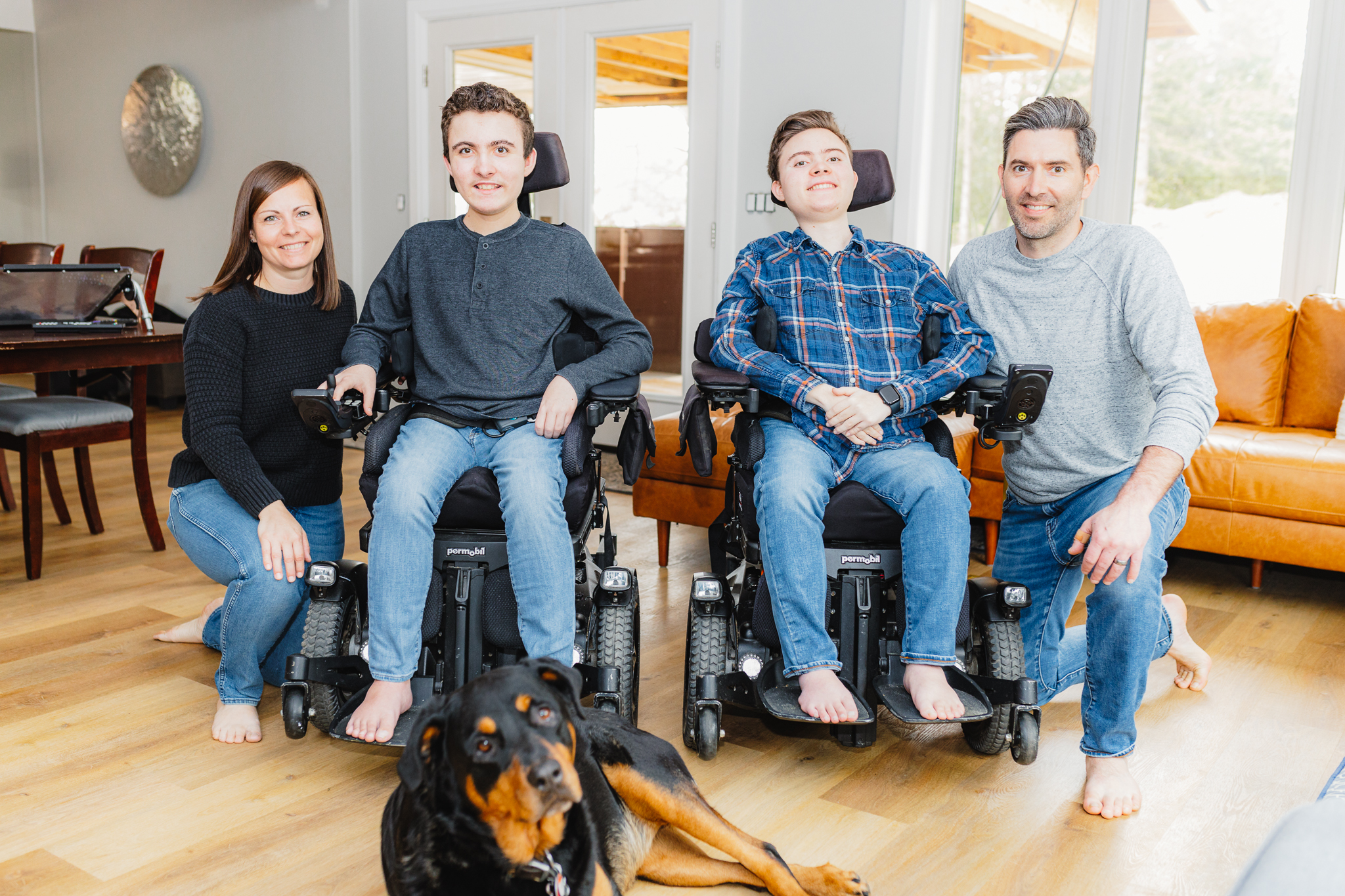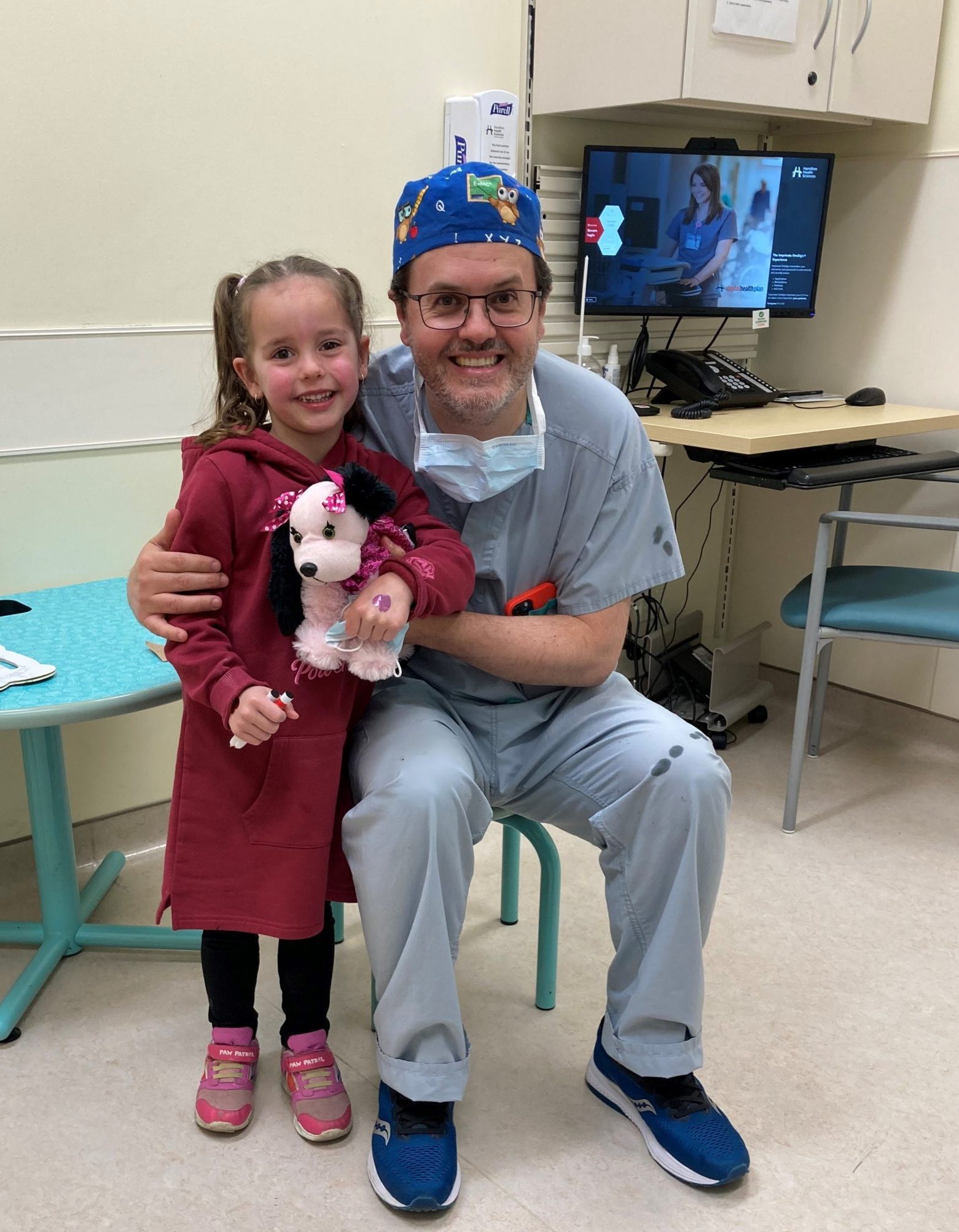
#MakeKidsCount: Helping `COVID generation’ reach their potential
Crystal Morrow wants to set up her daughter Violet for success. But pandemic-related delays at Ron Joyce Children’s Health Centre (RJCHC), combined with fewer in-person appointments, made it especially challenging for the four-year-old child with autism to receive the support she needed.
“It would have been much better to have in-person appointments.” — Crystal Morrow, parent
Violet was referred to RJCHC in March 2020 by her family doctor – around the same time the global pandemic was declared — for help with delays in speech, behaviour and play. Located in Hamilton’s north end, RJCHC is part of Hamilton Health Sciences (HHS) McMaster Children’s Hospital, and home to a range of outpatient services focused on child rehabilitation and developmental health.
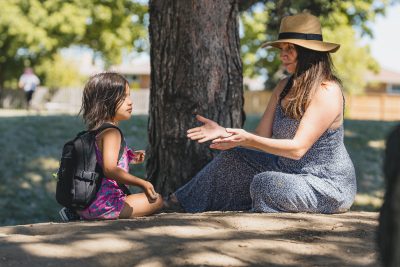
Crystal Morrow’s daughter Violet received support through RJCHC’s Specialized Developmental and Behavioural Services. But the family faced pandemic-related delays for some services.
Violet received support through RJCHC’s Specialized Developmental and Behavioural Services, for preschoolers with social, emotional and behavioural concerns.
Pandemic-related delays
“I found the staff very helpful and got a lot of useful information and strategies,” says Morrow. “I only wish that Violet could have been seen sooner, after she was referred by our family doctor. It would have also helped to have in-person visits more often, since the virtual visits were really challenging for a toddler.”
Some delays were the result of RJCHC closing for several weeks during the pandemic. Other delays, including the ones affecting Violet, were caused by a spike in urgent behaviour referrals that took top-priority. Since the pandemic, RJCHC has seen an increase in preschoolers referred because self-harm, with behaviours including head banging, biting themselves, and gouging at their eyes.
“Their very small world changed quickly, and it was stressful.” — Josh Diacur, clinical leader, Infant-Parent Program.
“We never saw this volume of explosive self-injury in this age group, pre-COVID,” says Josh Diacur, clinical leader for HHS’ Infant-Parent Program.
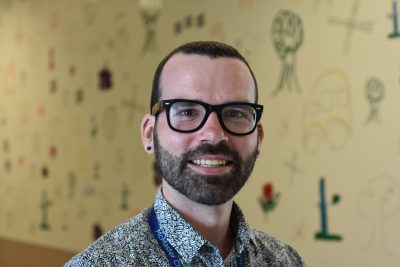
Josh Diacur, clinical leader for HHS’ Infant-Parent Program
To keep wait times from growing even longer for non-urgent patients like Violet, the program offered more virtual appointments and workshops to replace in-person visits.
“We were glad to get the help, but it was difficult to get Violet to cooperate with virtual visits because she was in her home environment,” says Morrow. “It would have been much better to have in-person appointments.”
The COVID generation
Diacur calls babies and preschoolers raised during the pandemic `the COVID generation.’
“Living highly-isolated lives is all they’ve ever known,” says Diacur, whose program provides services to children from newborn to 30 months old and their families including parenting workshops, in-home sessions with health-care providers and speech-language pathology services.
“These children were isolated for two years, and then suddenly pushed out of their comfort zones as the province opened up. Very quickly, they were in situations where they were socializing more, meeting new people and following new rules. Their very small world changed quickly, and it was stressful.”
Violet is still very much home-based with the pandemic now in its seventh wave. “She’s eligible for kindergarten this fall, but I’m holding off sending her until she’s vaccinated for COVID,” says Morrow, who also has adult children with autism. “Because of my experience raising my older kids, I was able to work with Violet at home and she’s doing well. But I really feel for parents who are new to this experience, and have been trying to get help for their kids.”
#MakeKidsCount
A coalition of Ontario hospitals, community mental health agencies, and children’s rehabilitation and development providers — including McMaster Children’s Hospital — launched the #MakeKidsCount campaign last spring, ahead of the provincial election. It focusses on how the pandemic has negatively impacted children’s health and exacerbated pressures in the children’s health care system, and calls on the province to make significant, immediate investments in children’s health during its first 100 days in office.
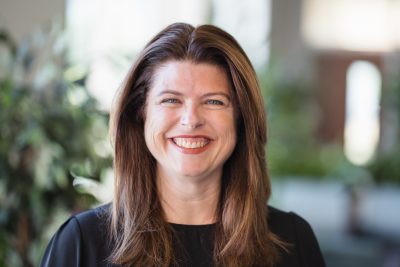
Cheryl Booker, interim clinical leader for Developmental Pediatrics and Rehabilitation
Specifically, the coalition wants the province to commit to investing $1 billion over four years in the Make Kids Count Action Plan. It also calls for the convening of a cross-sectoral children’s health summit with government, specialized children’s health care organizations, and health-care providers to develop and release Ontario’s first-ever Children’s Health Strategy.
Filling the void
Meanwhile, RJCHC teams are doing what they can to catch up with demand, but the treadmill is set faster than they can run with no end in sight.
“There’s been no increase to the funding for the Infant-Parent Program and Specialized Developmental and Behavioural Services for many years,” says Cheryl Booker, HHS’ interim clinical leader for Developmental Pediatrics and Rehabilitation. “Case load sizes have grown significantly, but staffing levels haven’t, so we’re doing a lot more with a lot less right now.”
Additional funding would allow these teams to intervene sooner instead of being reactionary to escalating behaviours.
“Infants with needs become toddlers with needs, who become children with needs, who become teens with needs, and so on,” says Diacur. “We need to get services to our youngest patients as early as possible to break this cycle because the sooner we can intervene, the better chance they have of not needing services long-term.”

